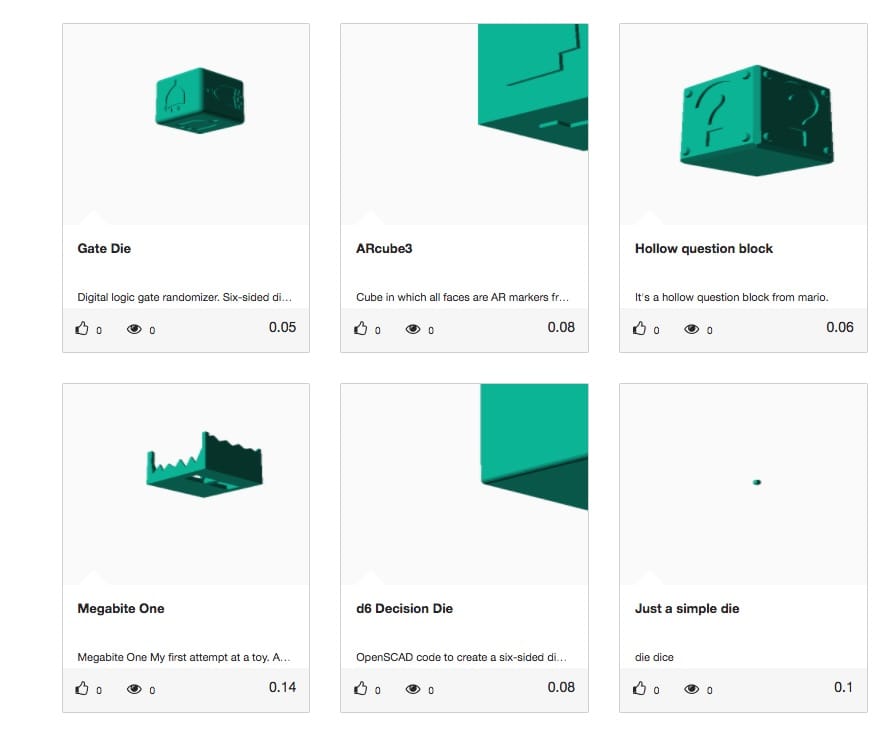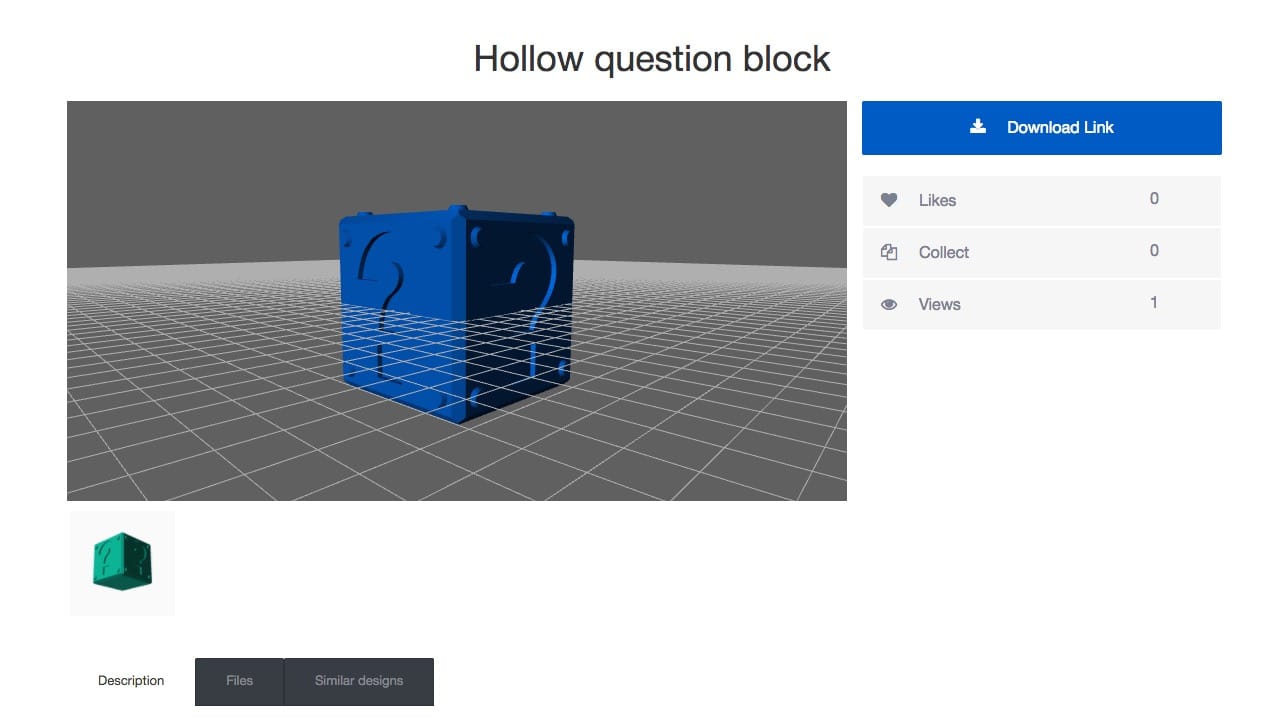
I’ve bumped into an unusual 3D model meta-repository that permits searching by a very different method.
Most repositories of printable 3D models are effectively crippled by the lack of appropriate and effective search systems. Almost invariably, the sites’ search facilities will use a text-based search technique.
You will most typically type in a set of keywords that are then matched against text entered by the submitter of each 3D model. The search could use the object’s title, its description or even its tags, if there are any.
But that’s the problem with these systems. If the submitter hasn’t entered sufficient text or appropriate text to match what you might be thinking. If you need a 17mm threaded rod 3D model, how can you find it if it called a “bolt”?
This frustration is dramatically increased when the repositories become large. Thingiverse and GrabCAD, for example, contain together over 2M 3D models, according to recent documents from Stratasys.
There are a couple of meta-repositories, such as Yeggi and Yobi3D that can perform text-based searches over a number of different actual repositories, but that doesn’t really solve the problem.
But now there seems to be an experimental system that can do something very different. MadeInOpen seems to permit a type of “visual” searching for 3D models. It’s quite analogous to Google’s “Search by Image”, in which you upload a picture and Google provides you with a list of what it believes to be similar images.
MadeInOpen does something very similar: you upload a 3D model (STL format) and it does some kind of search on various repositories to find what it believes to be similar 3D models. You can then access that file for download.
I tried the system and found that it basically works. Although I had to wait 30 seconds for the upload to occur, which I believe might be to temper the amount of incoming requests, it did accept an STL file. In my case, the file was the ubiquitous 20mm calibration cube, perhaps the most simple 3D model ever and one often used as the first test print on a new machine. Of course, I used it as the first test 3D model on this service.
I received back a lengthy list of 3D models that indeed were very cube-like (which you can see some of at top). You can scroll through the results and drill into the entries. Each entry is simply displayed as follows, but does allow you a full 3D view of the object that you can spin around and zoom in for detail.
Of course, there are far more results than you’d want, but at least this is a very different way of searching that does not depend on the textual whims of a submitter.
I tried a more complex 3D model, a 4.1MB figurine, but received an error message from MadeInOpen. Other complex 3D models exceeding 100K in STL size seemed to result in similar “Something went wrong” messages. But it seems that it does work, at least, sometimes, for smaller STL files.
These results betray the problem of such a system: it must be dreadfully computationally expensive. The only way I could see that it could work is if they somehow reduced each 3D shape into some type of digital “hash” value that could be searched for in rapid fashion, in much the same way that, for example, Shazam can instantly recognize audible music.
It seems that MadeInOpen is still a work in progress, and this is confirmed by reading their Contact, About and FAQ pages, each of which say:
Lorem ipsum dolor sit amet, consectetur adipiscing elit. Etiam tortor nibh, consectetur et diam eget, sodales blandit quam. Praesent tristique sit amet elit id tempus. Aliquam quis velit lorem. Donec vel dui metus. Suspendisse faucibus odio et ex dignissim, sit amet mattis nisl rutrum. Sed felis magna, laoreet sit amet arcu et, placerat ultricies augue. Aliquam et ex congue, maximus nulla nec, sollicitudin purus. Sed a mi ligula. Duis rhoncus dignissim risus, id rutrum tortor vehicula a. Praesent a nibh in felis suscipit scelerisque nec nec nisi. Mauris vel lobortis ligula. Sed condimentum, dui eget imperdiet commodo, mi ligula imperdiet mauris, quis imperdiet lectus metus sit amet magna.
This translates into: “Not quite ready yet.”
Whether this functionality is eventually fully implemented by whoever is behind Made In Open or someone else, I believe it’s vital to the future of 3D model repositories.
Via Made In Open


